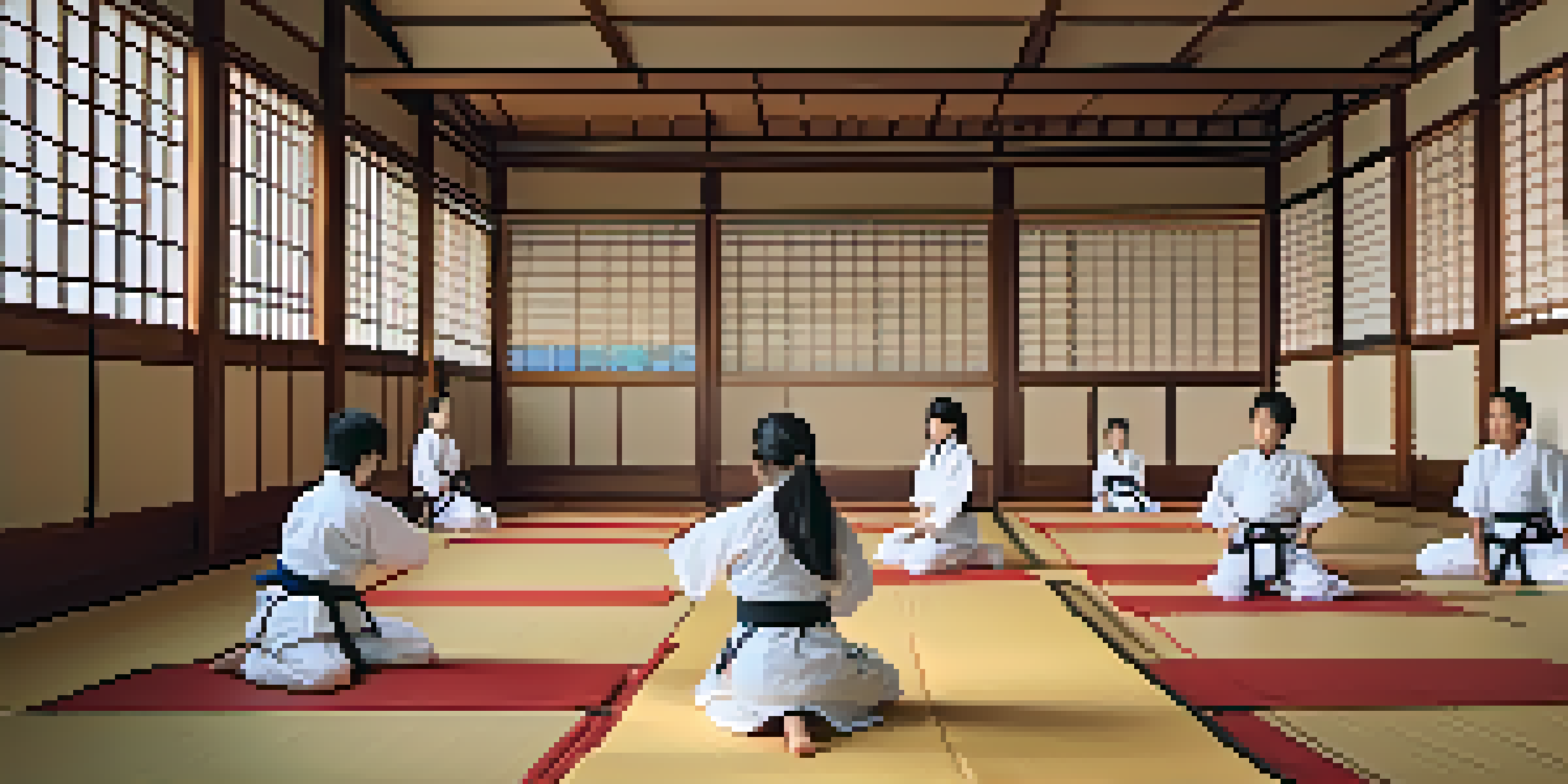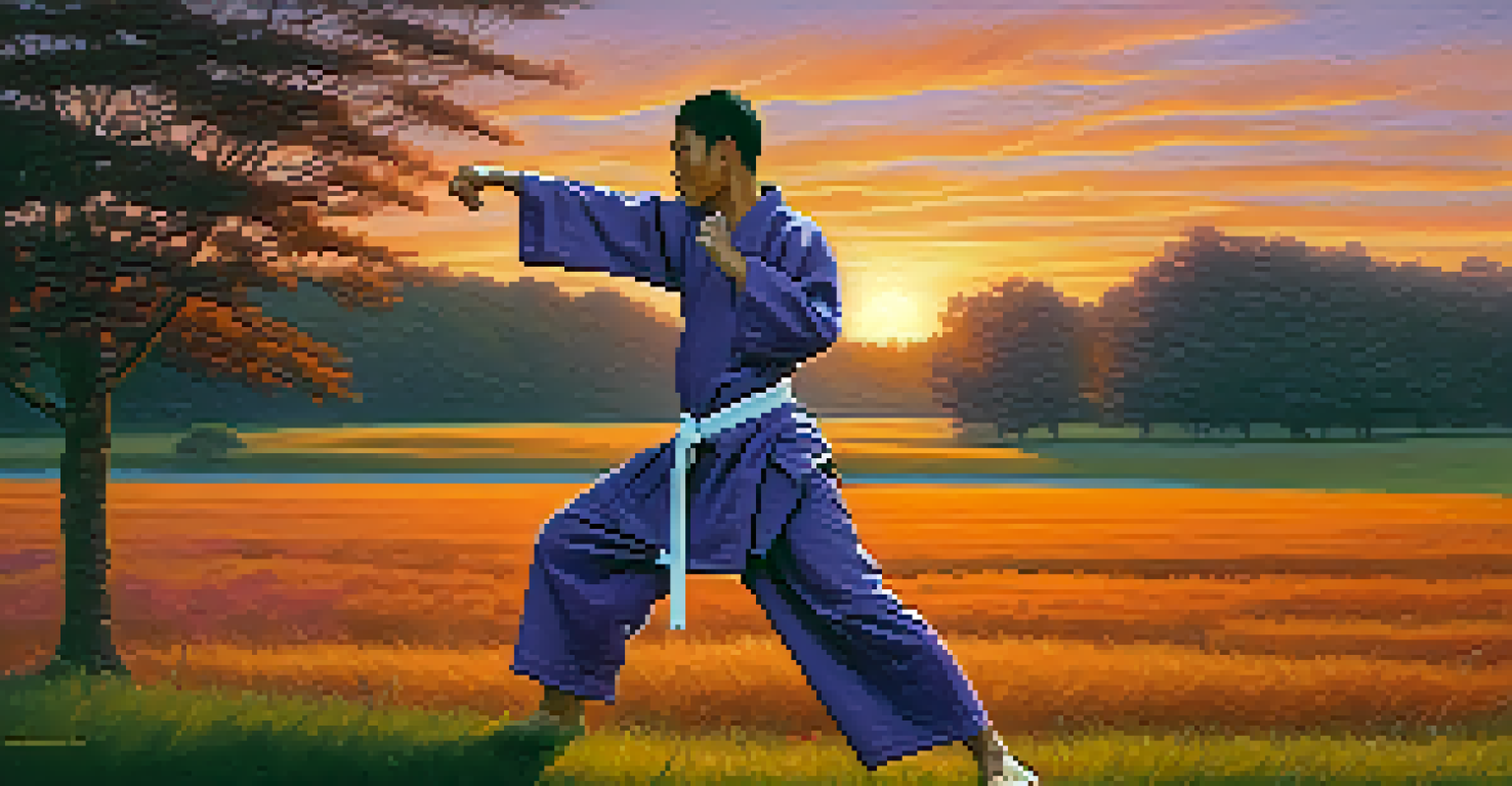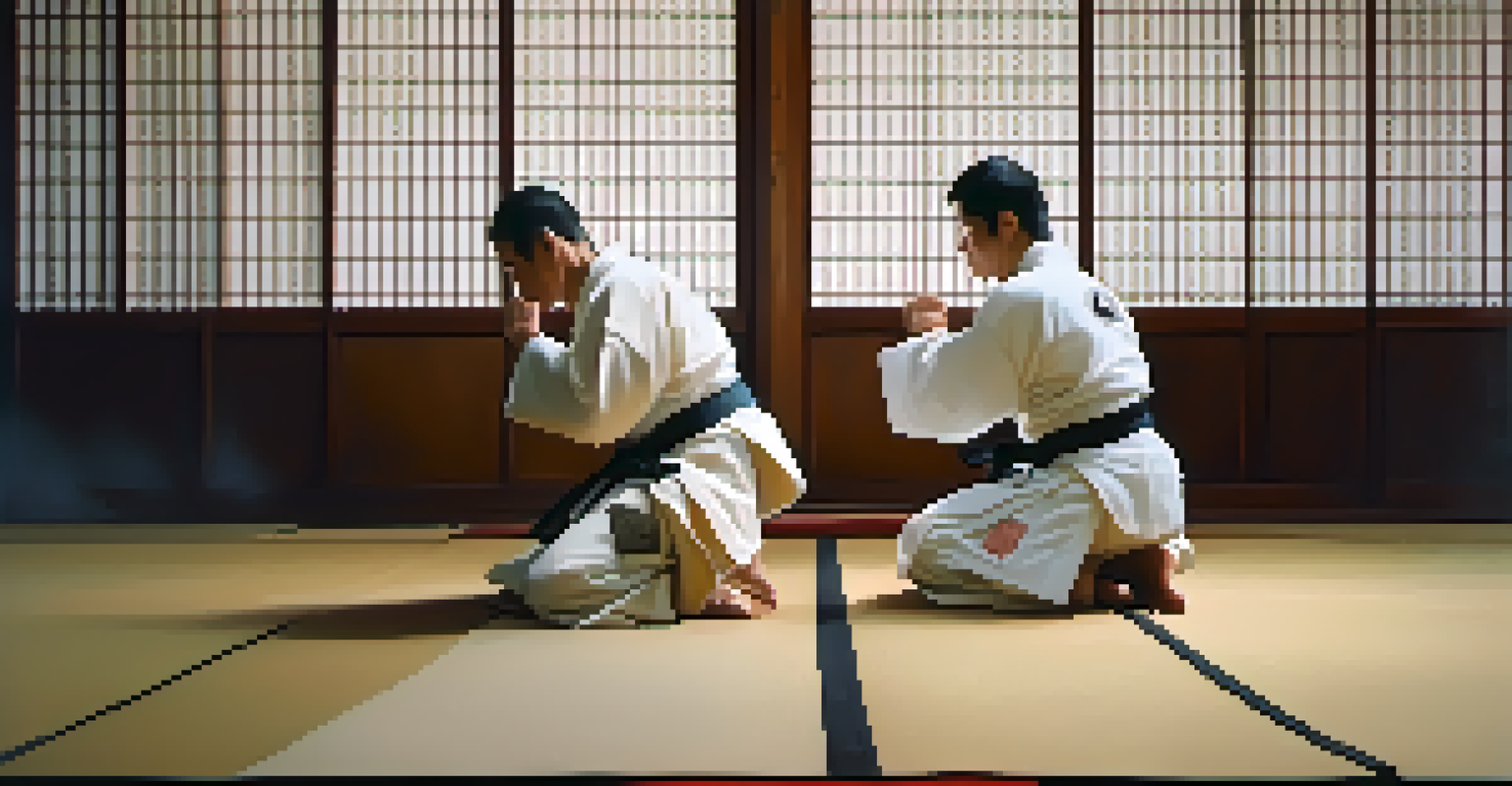Martial Arts Philosophy: Ethics and Social Responsibility

Understanding the Core Philosophy of Martial Arts
Martial arts isn't just about physical skills; it's deeply rooted in philosophy. At its core, martial arts often emphasizes principles like respect, discipline, and humility. These values shape practitioners not only as fighters but also as individuals who contribute positively to society.
Martial arts are not about the violence; they are about the discipline and respect that come from training.
The philosophy behind martial arts encourages self-reflection and personal growth. As students learn various techniques, they also learn about their character and how to handle challenges both on and off the mat. This dual focus allows practitioners to develop a well-rounded approach to life.
By embracing these philosophical tenets, martial artists forge a path that goes beyond competition. They become ambassadors of peace and understanding, embodying the spirit of martial arts in their everyday lives.
The Role of Ethics in Martial Arts Training
Ethics are fundamental to martial arts training, guiding how practitioners interact with each other and the broader community. Respect for instructors, fellow students, and the art itself fosters a supportive learning environment. This ethical framework helps prevent abuse of the knowledge acquired in training.

Practitioners face ethical dilemmas, particularly regarding the use of their skills. The commitment to use martial arts for self-defense rather than aggression highlights an essential ethical principle. This understanding not only protects individuals but also promotes a culture of peace.
Philosophy Shapes Martial Artists
Martial arts instills values like respect, discipline, and humility, guiding practitioners in their personal growth and interactions with society.
Training in martial arts instills a sense of responsibility. When students realize the potential impact of their skills, they are more likely to act with integrity and consideration, reinforcing the ethical foundations of their practice.
Social Responsibility Among Martial Artists
Martial artists are often viewed as role models within their communities. This perception creates a unique opportunity for practitioners to promote social responsibility. Whether through volunteering, mentoring youth, or participating in community events, martial artists can make a significant impact.
The ultimate aim of martial arts is not having to use them.
In addition to personal development, martial arts training emphasizes giving back. Many dojos and schools engage in charitable activities, teaching students the importance of contributing to their communities. This fosters a sense of belonging and purpose beyond the dojo.
Social responsibility in martial arts also includes standing up against injustice. Practitioners are encouraged to use their skills and philosophies to advocate for the marginalized, which helps cultivate a more equitable society.
The Importance of Respect in Martial Arts Practice
Respect is a cornerstone of martial arts, shaping interactions between students and instructors. This mutual respect cultivates a safe learning environment where individuals can thrive. It also reinforces the idea that martial arts is not just about fighting, but about building relationships.
Through rituals like bowing and addressing instructors with honorifics, practitioners learn the value of respect in action. This practice extends beyond the dojo, influencing how they interact with others in daily life. It serves as a reminder that respect is integral to personal and communal harmony.
Ethics Guide Training Practices
The ethical principles in martial arts promote responsible behavior, encouraging students to use their skills for self-defense and community support.
Ultimately, cultivating respect leads to stronger bonds among practitioners. When respect is at the forefront, students are more likely to support one another, creating a positive atmosphere that enhances learning and personal growth.
Discipline: The Path to Personal Growth
Discipline is essential in martial arts, guiding practitioners through the rigorous training process. It teaches students the importance of commitment, perseverance, and hard work—qualities that are essential for personal growth. This discipline helps transform challenges into opportunities for development.
As practitioners embrace discipline, they learn to set and achieve goals, whether related to skill improvement or personal life. This process fosters a sense of accomplishment and confidence, which can translate into other areas of life. The lessons learned on the mat often extend far beyond it.
Moreover, discipline in martial arts encourages a balanced lifestyle. By prioritizing physical and mental training, practitioners cultivate resilience and focus, equipping them to handle life’s obstacles with grace and determination.
Integrating Mindfulness into Martial Arts Practice
Mindfulness is an often-overlooked aspect of martial arts, yet it plays a crucial role in ethical practice. By being present in their training, practitioners can develop a deeper understanding of themselves and their actions. This awareness fosters a more profound appreciation for the art and the philosophy behind it.
Incorporating mindfulness techniques, such as breathing exercises and meditation, enhances focus and emotional regulation. These practices help martial artists maintain composure in challenging situations, whether in competition or daily life. This mental clarity is essential for ethical decision-making.
Building Positive Communities
Martial arts fosters a strong sense of community by promoting inclusivity and social responsibility, inspiring practitioners to support one another and contribute to society.
Ultimately, mindfulness encourages an ethical mindset. When practitioners are aware of their thoughts and feelings, they are better equipped to navigate moral dilemmas, ensuring their actions align with the values of martial arts.
Creating a Positive Community through Martial Arts
Martial arts have the power to build strong, positive communities. By fostering respect, discipline, and social responsibility, practitioners create an environment where everyone feels valued. This sense of community encourages individuals to support one another in their journeys.
Many martial arts schools promote inclusivity and diversity, welcoming practitioners from all backgrounds. This openness enriches the learning experience, allowing students to gain perspectives from different cultures and life experiences. It also reinforces the idea that martial arts is a universal language.

Ultimately, a positive community in martial arts extends its influence beyond the dojo. Practitioners are inspired to carry these values into their daily lives, promoting kindness, respect, and social responsibility in their interactions with others.